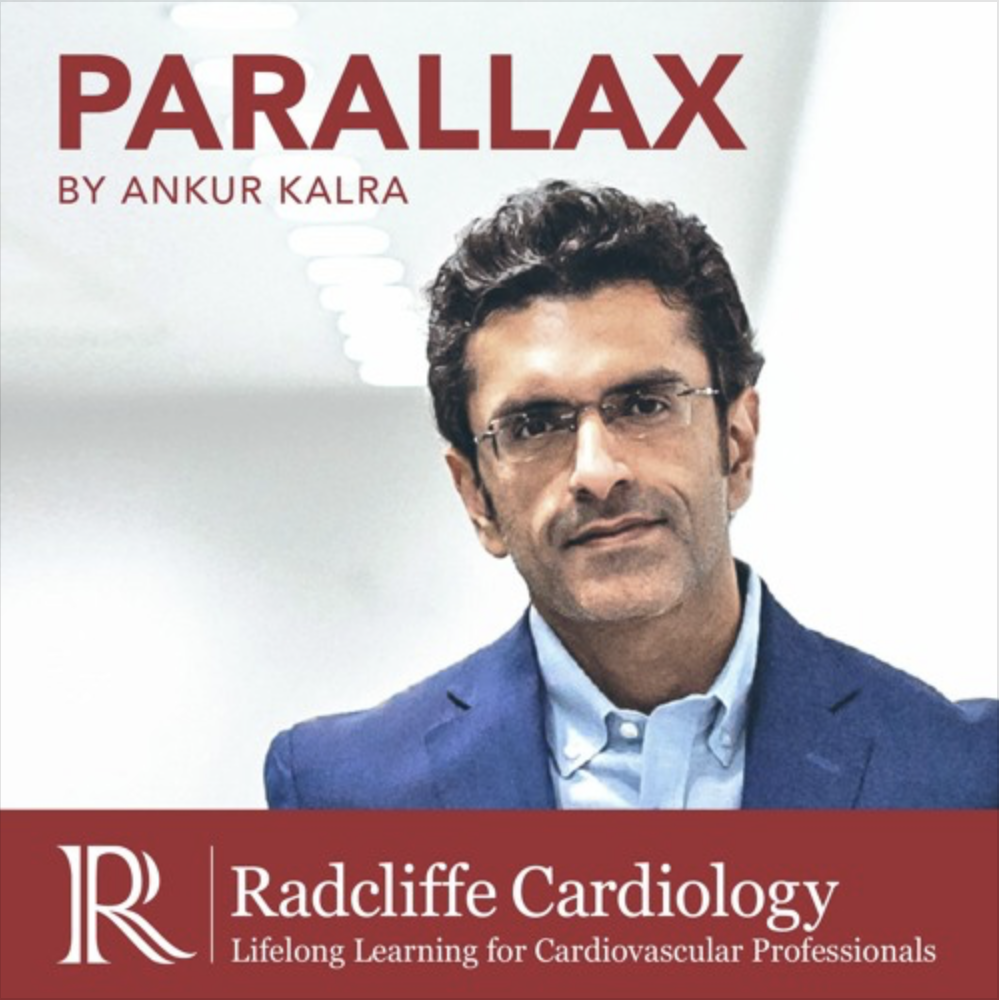
In our final episode of the year, Ankur has an long conversation with Sukh Nijjer from Imperial College London about the most impactful, exciting and controversial clinical trials of 2019. Sukh and Ankur also discuss how these trials might change practice in the future, and how practice patterns and decisions differ between the US and the UK. In light of an emerging trend of shared decision making between physicians of different specialities and patients with a vast amount of information at their fingertips, Sukh and Ankur examine what tools they use to reconcile the growing data from clinical trials.
Trials discussed in detail include those presented at the ACC in New Orleans: PARTNER 3 & Evolut Low Risk on TAVR/TAVI, and SAFARI & COAPT on radial vs femoral access; presented at the ESC in Paris: THEMIS and ISAR-REACT 5 on DAPT post-PCI, DAPA-HF on SGLT2i’s for heart failure, and COMPLETE on PCI of non-culprit lesions in STEMI; presented at TCT in San Francisco: TWILIGHT on DAPT post-PCI, and EXCEL at 5 years on PCI vs CABG in left main CAD; and finally, presented at AHA in Philadelphia: ISCHEMIA on medical vs invasive approaches in ischemic events. Submit your question to Ankur via: podcast@radciffe-group.com.
Hosted by @AnkurKalraMD. Produced by @RadcliffeCARDIO.

Her recent post on social media went viral. It was a photo of an all-women surgical team carrying out a complex structural heart procedure. It had over 100,000 views and was seen by people in over 75 different countries. It’s clear from this online reaction, that now is the time for women to be recognised for the work they are doing in medicine.
Listen to this engaging discussion between them on the challenges of being a woman in cardiovascular medicine today.
Submit your question to Ankur via: podcast@radciffe-group.com. Hosted by @AnkurKalraMD. Produced by @RadcliffeCARDIO.


The charity organisation, Women as One is an agent for women and men to be part of medicine that is built on talent, rather than a privilege. Roxana and Ankur discuss the role of mentorship and family-friendly work environment in mending the broken house of cardiology. Roxana talks about the practical tools that are available for women to take the next steps in their career and achieve their goals.

Dr Kalra asks Dr Mauri about early influences and her traineeship with legendary interventionalists, the late Donald Baim and Richard Kuntz. Dr Mauri talks openly about her decision-making process and the importance of selecting your priorities and committing to them. Ankur asks Laura about her decision to go into industry. Laura shares her thoughts on medical innovations and meeting urgent needs with unique perspectives.
What is Dr Mauri’s advice for a young cardiologist? How did she balance research and patient care? What are the questions that helped her decision making? How does Dr Mauri think about innovations in medicine?

Brigham and Women’s Hospital’s Health Equity Committee decided to confront the status quo by asking: How is racism on a structural level present within our walls?
Ankur Kalra’s guests Michelle Morse (Founding Co-Director of EqualHealth and Assistant Professor at Harvard Medical School) and Lauren Eberly (Cardiology Fellow at the University of Pennsylvania) are co-authors of a retrospective study that demonstrated what had previously only been observed: That black or brown heart failure patients ended up in general medicine rather than specialised cardiology services. Following the publication of the study in November 2019, the Health Equity Committee started to roll out anti-racism trainings and to work on objective admission guidelines to mitigate biased behaviours.
Aarti Bhatt (Assistant Professor of Medicine at the University of Minnesota), member of the Minnesota chapter of Campaign Against Racism, talks about their initiative to support projects that have a positive impact on local communities on a global scale.

In this week’s Parallax, Dr Kanaa’N, the director of the program, and Dr Lahorra, chairman of the Heart, Vascular & Thoracic Department of Akron General introduce the listeners to the foundations of their program and the paradigm shift brought by TAVR.

Ankur Kalra asks Grant W Reed, Director of the Cleveland Clinic’s STEMI program, to reflect on the actions they took and the challenges of delaying cardiovascular procedures in the wake of the coronavirus pandemic. Dr Reed offers insight on the factors that influenced the Cleveland Clinic’s STEMI policy for COVID-19. Ankur and Grant discuss the triage considerations for patients with structural heart disease and the steps the clinic took to protect its healthcare workers.





